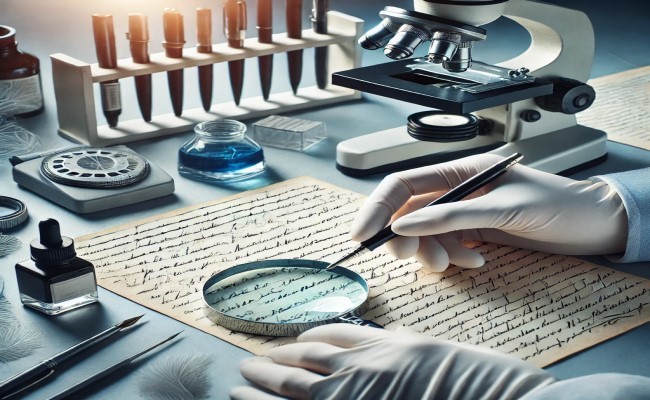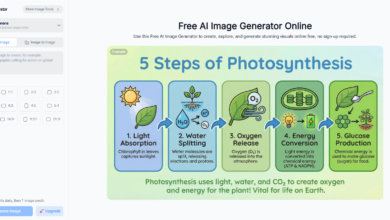Jane A. Lewis Forensic Expertise: Leading the Field in Document Examination
How Jane A. Lewis Revolutionized Forensic Document Analysis and Paved the Way for Objective Examination Practices

Jane A. Lewis, a distinguished forensic document examiner, has significantly contributed to forensic science through her expertise in analyzing questioned documents. Known for her pioneering work in minimizing cognitive bias, Lewis has authored essential resources like Forensic Document Examination: Fundamentals and Current Trends, which professionals widely utilize to ensure accurate and objective forensic analysis. Her work continues to be a benchmark in legal and investigative circles, solidifying her reputation as a leading authority in forensic document examination.
Introduction
Forensic document examination is a critical field within forensic science, where experts like Jane A. Lewis have played a pivotal role in advancing the methodologies used to analyze and authenticate documents. With decades of experience, Jane A. Lewis has become a renowned name in this specialized area, contributing through her practical work in high-profile cases and authoritative publications. This article delves into the career of Jane A. Lewis, exploring her impact on forensic document examination, the challenges she has addressed in the field, and how her work continues to influence forensic practices today.
Jane A. Lewis: A Pioneer in Forensic Document Examination
Early Career and Foundations
Jane A. Lewis began her journey into forensic document examination with a solid academic foundation, earning degrees in forensic science and criminology. Her early work focused on the meticulous analysis of handwriting, ink, and paper, laying the groundwork for her future contributions to the field. Over the years, she has worked on numerous cases requiring her expert opinion, gaining the trust of law enforcement agencies, legal professionals, and private investigators.
Contributions to Minimizing Cognitive Bias
One of Jane A. Lewis’s most notable contributions to forensic document examination is her work on minimizing cognitive bias. Cognitive bias in forensic analysis can lead to errors in judgment, potentially compromising the integrity of the examination. Lewis has been at the forefront of developing and promoting standardized procedures that ensure objective and unbiased results. Her methodologies are now widely adopted, reducing the risk of error in forensic document analysis.
Key Publications and Educational Impact
Jane A. Lewis’s influence extends beyond her casework into the academic and educational realms. Her book, Forensic Document Examination: Fundamentals and Current Trends, has become a staple reference for novice and experienced forensic document examiners. The book covers a wide range of topics, from the basics of document analysis to advanced techniques used in the field. It also addresses the latest trends and technologies shaping forensic document examination’s future.
Practical Applications in High-Profile Cases
Throughout her career, Jane A. Lewis has been involved in several high-profile cases where her expertise in forensic document examination was crucial. Her ability to detect forgeries, alterations, and other document manipulations has helped solve complex legal disputes and criminal investigations. Her work has been instrumental in securing convictions and uncovering the truth in cases where the authenticity of documents was in question.
The Importance of Forensic Document Examination
Forensic document examination plays a vital role in the legal system, helping establish the authenticity of documents presented as evidence in court. Experts like Jane A. Lewis ensure that documents are thoroughly analyzed for signs of tampering, forgery, or fraud. This process is essential in upholding justice, as the outcome of many legal cases hinges on the validity of documentary evidence.
Challenges in the Field and Future Directions
Despite the advancements in forensic document examination, the field continues to face challenges, particularly with the increasing sophistication of document forgeries. Jane A. Lewis has been a vocal advocate for ongoing research and development in this area, emphasizing the need for continuous improvement in techniques and technologies. She has also highlighted the importance of training the next generation of forensic document examiners to meet the evolving demands of the field.
Jane A. Lewis Forensic PDF Resources
For those interested in learning more about Jane A. Lewis’s work, several resources are available in PDF format. Her publications, including the highly regarded Forensic Document Examination: Fundamentals and Current Trends, can be accessed through academic platforms and online bookstores. These resources provide invaluable insights into the principles and practices of forensic document examination, making them essential reading for anyone in the field.
Conclusion
Jane A. Lewis’s contributions to forensic document examination have left a lasting impact on the field. Her work in minimizing cognitive bias, her authoritative publications, and her involvement in high-profile cases have solidified her reputation as a leading expert in forensic science. As the field continues to evolve, Jane A. Lewis’s legacy will undoubtedly inspire future advancements and innovations in forensic document examination.

